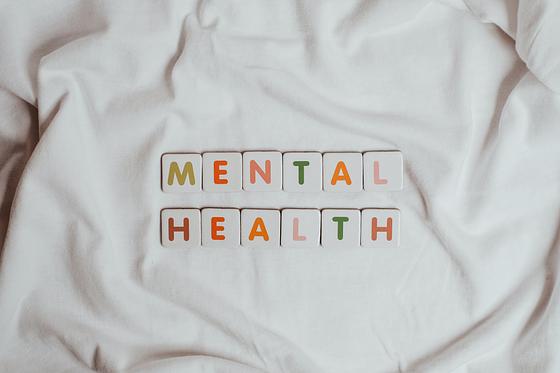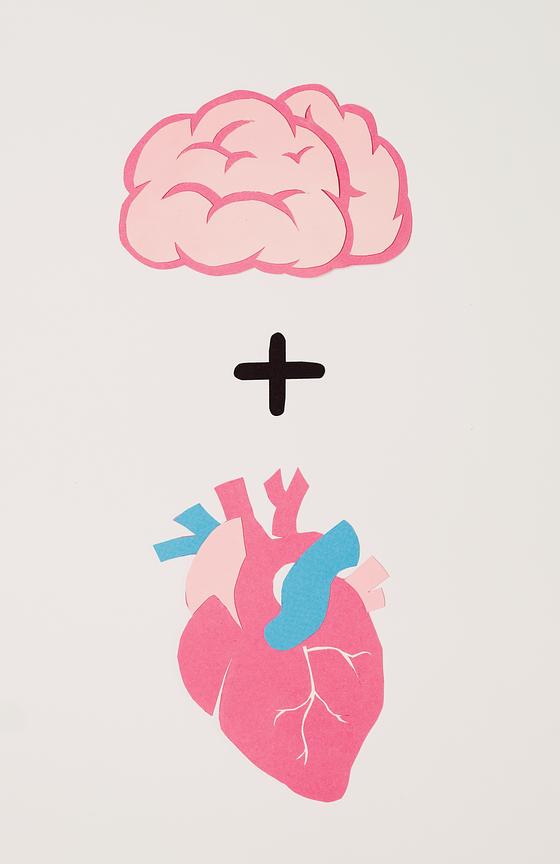May is Mental Health Awareness month. According to the World Health Organization (WHO), good health is a state of complete physical, mental and social well-being and not merely the absence of disease or infirmity- taking care of our brain is important for a good health. Each year, countless number of teens all around the globe face the reality of living with a mental illness and often, in some cases, it goes unnoticed by family and friends in their surroundings. Teenagers are mostly quiet about these particular issues and avoid seeking help from professionals.
It is undeniably true that the pandemic is taking a toll on our mental health. Therefore, this year the Mental Health Awareness months' theme is Nature since people are spending more time reconnecting with nature during lockdown. Nature, growing flowers, taking care of plants or even going on a walk in nature, helps people to get through this anxious situation.
To raise awareness on this issue, which is, unfortunately still greatly stigmatized in some communiies specially Asian communities, it is essential to talk it out and to understand the “behavior” of mental diseases and how it affects an individual.
To better envision what it's like to live with a mental disorder or to encourage those struggling to speak up and seek help, I recommend reading the books listed below — they depict the story of people living with mental disorders and how they are battling mental illness in their everyday life. Moreover, reading is a peaceful habit that can help to switch off from this harsh reality and [censored]-hole of mental disorders.
Also, if you are someone who is struggling, first of, you are not alone, your feelings are valid and hang in there, you're going to be okay. You can talk to someone you trust and reach out for help.

Photo by Vie Studio
Let us slide into your dms 🥰
Get notified of top trending articles like this one every week! (we won't spam you)Here are some books worth reading about mental health:
1. Turtles all the way down by John green
Release date: October 10, 2017
Topic: OCD, anxiety
“Your now is not your forever.” — Turtles All the Way Down
This book talks is about mental illness and delves into the mind of a 16-year-old American high school student with OCD and anxiety, Aza Holmes. Aza's obsessive-compulsive disorder affects every area of her life and is constantly on her mind. John Green talks about his own struggles with OCD in this book.
“I had to write with enough distance from myself to make it OK, to make it feel safe. And so Aza has somewhat different foci of her obsessive concerns,” he said, explaining that “it was really hard, especially at first, to write about this thing that's been such a big part of my life.”
Green writes as the first person in this book which allows readers to be immersed in Aza's mind: experiencing a shadow of the weight of the obsessive concerns, worries, and panics that constantly cycle through her mind. Books like these can help in de-stigmatizing mental health disorders through discussions that educate. While the novel is not only about mental illness—it also includes mystery, romance, and the importance and nuance of friendship.
2. looking for Alaska by John Green
WARNING: SEXUALLY EXPLICIT!!!
Release date: March 3, 2005 (originally published)
Topic: Depression and suicide
Another John Green recommendation, since I'm a huge fan of his YA novels.
''She loved mysteries so much, that she became one.”- Looking For Alaska
Looking For Alaska helps us to see the world through Alaska's, the main character, eyes. This novel also demonstrates the power and importance that death, suffering, and unhappiness have in life. Following the traumatic death of her mother, Alaska struggles to let go of the sadness associated with this particular day. From Alaska’s erratic behavior and Pudge’s aka Miles Halter and the Colonel’s research, it appears that Alaska was suffering from some form of depression.
In the United States, approximately 11% of people below the age of 18 have depressive disorder, and like Alaska, many go undiagnosed.
The book is often hailed for its realistic depiction of teenage depression and Looking for Alaska includes a great tragedy, it ultimately helps us to learn that the key to overcoming the downs that life will throw at us is forgiveness. After all, it’s the only way out of this labyrinth of suffering.
3. Wintergirls by Laurie Halse Anderson
Release date: March 19, 2009
Topic: Eating disorder
“Who wants to recover? It took me years to get that tiny. I wasn't sick; I was strong.”― Wintergirls
The novel revolves around the death of Lia's, the main character, best friend Cassie who was bulimic; and Lia's thought about what she could have done differently to save her best friend's life.
Lia believes that her anorexic disorder and self-mutilation give her control. She has been to rehab and therapy before and has been hospitalized twice. She does not want to go back to the psychiatric hospital, but she keeps starving herself.
Eventually, Lia seeks help for her problems, knowing the healing process will be difficult, but she decided that she wanted to live.
Wintergirls is a well-written in-depth book and I recommend reading this only if you are mentally strong and if you feel like you can get through this book since it does contain some gruesome detailed scenes on self-harm and anorexia.
4. This is my brain in love by I. W. Gregorio

Photo by Nadezhda Moryak
Release date: April 14, 2020
Topic: Depression, Anxiety
This novel is told in 2 POVs, Jocelyn Wu and Will Domencici. Jocelyn is an American Chinese while Will is a Nigerian American.
The story revolves around them working together in Jocelyn's dad's business and eventually falling for each other, but it's complicated since her dad does not want them to date. Both teens deal with insecurities and mental health issues. Will starts to notice that Jocelyn has depression while he is dealing with anxiety disorder himself.
The novel importantly addresses interracial relationships and mental health within the Asian American community. This book felt so real it wasn't hard to relate to the characters. Also, it shows that while people cannot 'fix' other people, they can surely be their support and lead them into seeking help.
PSA: you will want to eat potsticker dumplings at some point during this book
5. All the bright places by Jennifer Niven
Release date: January 6, 2015
Topic: bipolar disorder
''Your hope lies in accepting your life as it now lies before you, forever changed. If you can do that, the peace you seek will follow. Forever changed. I am forever changed.”- All The Bright Places
In this novel, Violet is mourning the death of the sister and her classmate, and Finch stops her from attempting suicide.
All the Bright Places gives us an accurate representation of how difficult it is to reinvent ourselves after a tragedy. It also shows that Violet and Finch’s relationship is not simply about love, but rather the importance of having someone who will be there to allow you to open up without judgment. When we bottle up our feelings, we are only distancing ourselves from getting healed. It's when we begin to open up to other people and talk about our difficulties are we able to move one step closer to the healing process.
Later on, we see Finch trying to control his simmering rage and dark thoughts- his symptoms referring to bipolar disorder. The way of how Violet and Finch handle their problems is palpable. If anything, All the Bright Places understands that each person has his or her own way of handling mental illness.
(The ending might make you cry)

Photo by stayhereforu
Living with a mental illness is hard, and it can affect various areas in your life. By seeking help, you are one step closer to being treated.
“You don't have to see the whole staircase, just take the first step.” — Martin Luther King, Jr.
Remember taking medication is not a sign of weakness.

Take the Quiz: What is your IQ level?
Find out how smart you are by taking this quiz!
Things you can do to boost your mental health
-
Practice a hobby.
-
Practice self-love, forgiveness and gratitude daily.
-
Value yourself and your body.
-
Get rid of toxic friendships and relationships.
-
Set realistic goals.
-
Stop comparing yourself to others.
-
Reward yourself for your accomplishments.
-
You can start journaling to keep track of your daily habits and moods.
-
Run a warm bath.
-
Do something outside your comfort zone.
-
Go on a walk in nature.
-
Take time to recharge.
-
Let it all out if you're struggling. Write about it on paper or talk to a close friend or family member.
-
Use daily affirmations to get your day started.
-
Set a sleep schedule.







.jpg)



